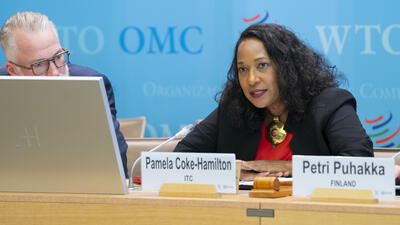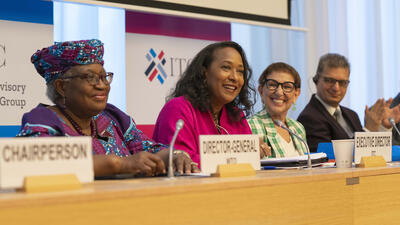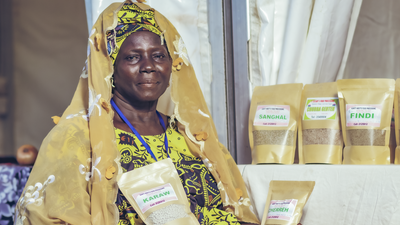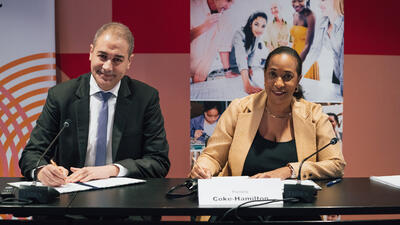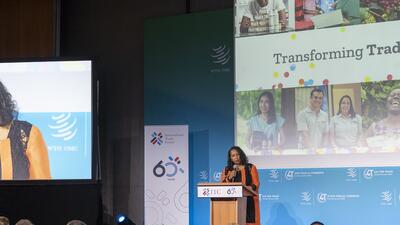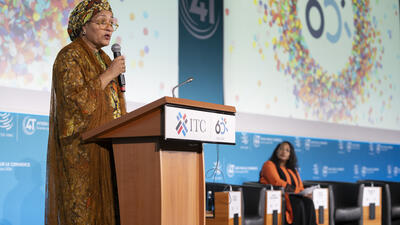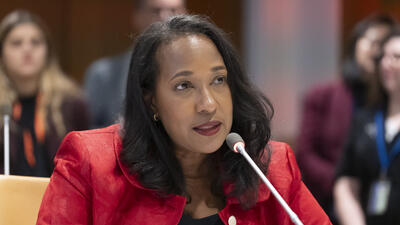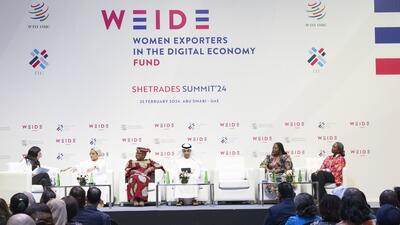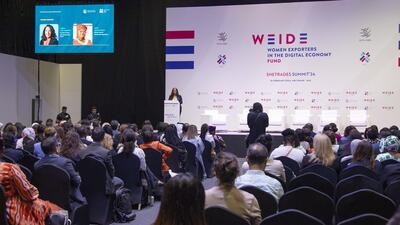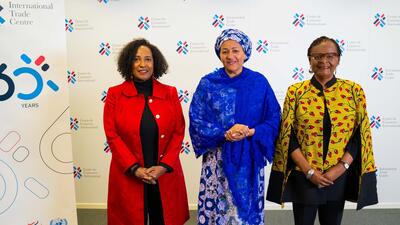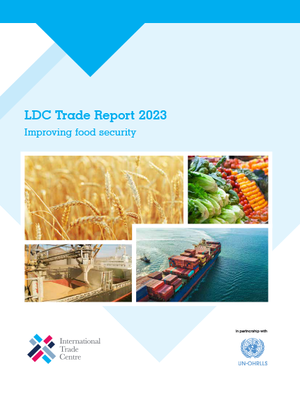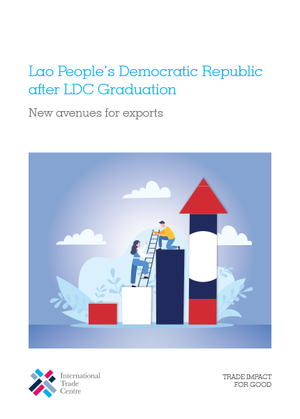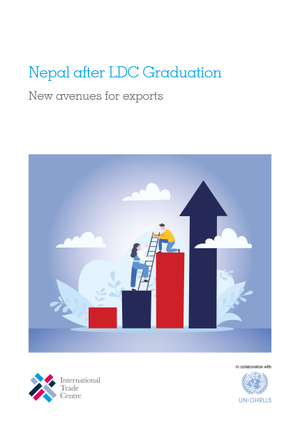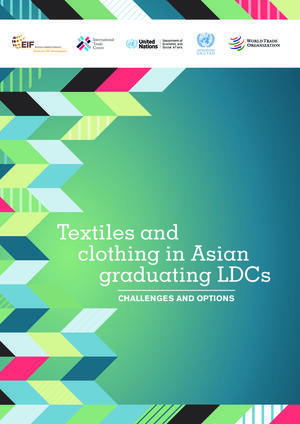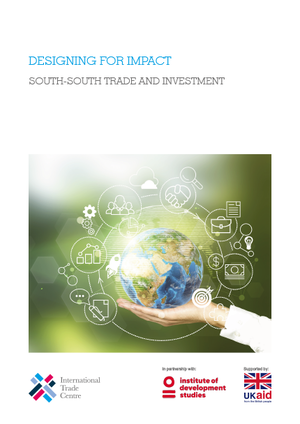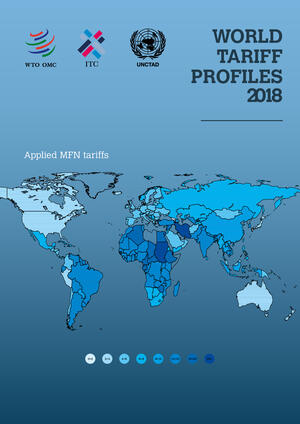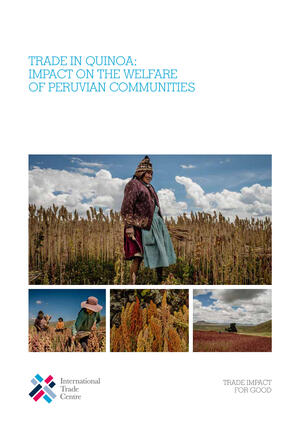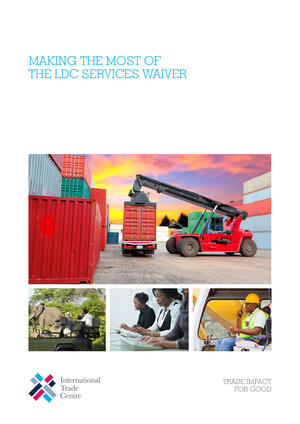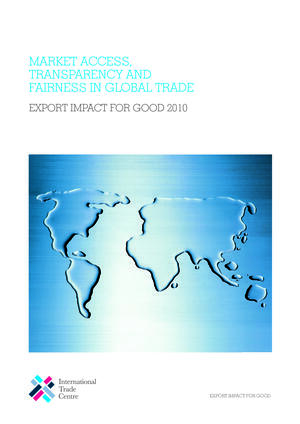
New trade report: Improving food security in least developed countries
(Doha/Geneva/New York) Trade can increase the availability and affordability of food in least developed countries (LDCs), where more than 60% of people deal with food insecurity – twice as much as in developing countries, and six times as much as in developed countries.
In the context of increasing global instabilities, a new report by the International Trade Centre (ITC) and the lead United Nations agency supporting least developed countries highlights trade policy options to help them work towards sustainable, trade-led development, in the face of crises.
ITC Executive Director Pamela Coke-Hamilton and Rabab Fatima, High Representative for the Least Developed Countries, Landlocked Developing Countries and Small Island Developing States (UN-OHRLLS), launched the LDC Trade Report 2023: Improving Food Security today during the Fifth United Nations Conference on the Least Developed Countries (LDC5) – a conference that takes place once a decade – this time in Doha, Qatar.
Ms. Coke-Hamilton said: “Least developed countries continue to depend on commodity exports almost twice as much as other developing countries, and they continue to be more vulnerable to global instabilities. We as the global community have to do more, and we have to do better. This joint report with OHRLLS highlights concrete policy actions we can take to make a difference for them.”
Ms. Fatima said: “The vulnerability of least developed countries to external shocks affects poor households, especially in rural areas, leading to food insecurity. This ultimately impacts global peace and security. The report we are here to launch sheds light on the crucial role that trade can play in strengthening food security.”
The report highlights two main groups of trade policies to help least developed countries strengthen their resilience: improving market access for food imports and tapping into alternative sources of food supplies.
Improving market access for food security
Least developed countries currently impose a 17% tariff on food imports, while developing and developed countries levy 15% and 8%, respectively.
ITC surveys in 17 least developed countries from 2010-2022 show that regulatory and procedural obstacles can complicate food imports. More than half (57%) of all interviewed food importers in LDCs reported being affected by non-tariff measures, compared to 34% and 11% in developing and developed countries, respectively.
LDC food importers face challenges connected to customs valuations, customs surcharges and merchandise handling or storing fees. Importers in LDCs such as the United Republic of Tanzania, Ethiopia and Bangladesh reported their biggest difficulties were related to the procedures they must follow to comply with regulations, rather than the regulations themselves. Tackling these challenges will reduce delays and costs and help channel essential items quickly to where they are most needed.
Integration initiatives such as the African Continental Free Trade Area (AfCFTA) have an important role to play in making intra-regional trade duty free, harmonizing regulations and streamlining procedures.
Tapping into new sources of food supply
While on average LDCs import food from 77 distinct suppliers, developing and developed countries source their food from 117 and 163 partners. For certain products, such as rice or vegetable oils, almost four-fifths of total LDC imports come from only one or two suppliers.
Policies aimed at improving the links between trade and food security would look at factors such as diversification of suppliers and strengthening of regional agri-food value chains to increase resilience in light of global instabilities.
Strengthening LDCs’ trade through global partnerships
Unfavourable import procedures, dependence on few suppliers, and the lack of regional value chains are all part of a wider problem: least developed countries only account for about 1% of global trade, despite the target to double their share of global exports by 2020.
Trade, if well-managed, can be a tool to tackle the root causes of obstacles holding least developed countries back. Investing in building the capacity of small businesses – which make up 95% of jobs in LDCs – to sell in regional and international markets can drive trade-led development.
Trade plays a key role for LDCs, as highlighted in the Doha Programme of Action. The Doha Programme of Action is designed to help LDCs return to a pathway to achieve the Sustainable Development Goals.
This joint report is accompanied by a free website, the LDC Trade Tracker, allowing monitoring of wider trends and patterns of LDCs’ trade through interactive and downloadable charts. For more information on the report, visit the ITC@LDC5 webpage.
About the International Trade Centre: The International Trade Centre is the joint agency of the World Trade Organization and the United Nations. ITC assists micro, small and medium-sized enterprises in developing countries to become more competitive in global markets – thus contributing the United Nations Sustainable Development Goals. For more information, visit www.intracen.org. Follow ITC on Twitter | Facebook | LinkedIn | Instagram | Flickr
About the United Nations Office of the High Representative for the Least Developed Countries, Landlocked Developing Countries and Small Island Developing States – UN-OHRLLS was established in 2001 and serves 91 vulnerable Member States. The 46 Least Developed Countries (LDCs), 32 Landlocked Developing Countries (LLDCs) and 38 Small Island Developing States (SIDS) are facing their own unique sets of challenges in achieving sustainable development and internationally agreed goals. Led by the High Representative, UN-OHRLLS mobilizes international support and advocates in favour of the three vulnerable country groups. They work to raise awareness about the economic, social and environmental potential that exists in these countries and ensure that the pressing needs of the 1.1 billion people who live in them, remain high on the international agenda.
Media contacts
Susanna Pak
Senior Strategic Communications Officer
ITC
E : pak [at] intracen.org (pak[at]intracen[dot]org)
T: +41 22 730 0651
M: +41 79 667 4660
Conor O’Loughlin
Head of Advocacy and Outreach
UN-OHRLLS
E: conor.oloughlin [at] un.org (conor[dot]oloughlin[at]un[dot]org)
T: +1 917 328 8316




